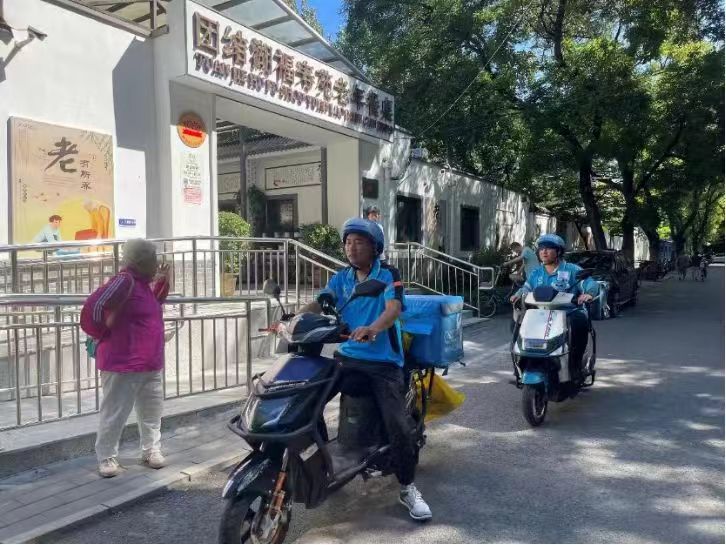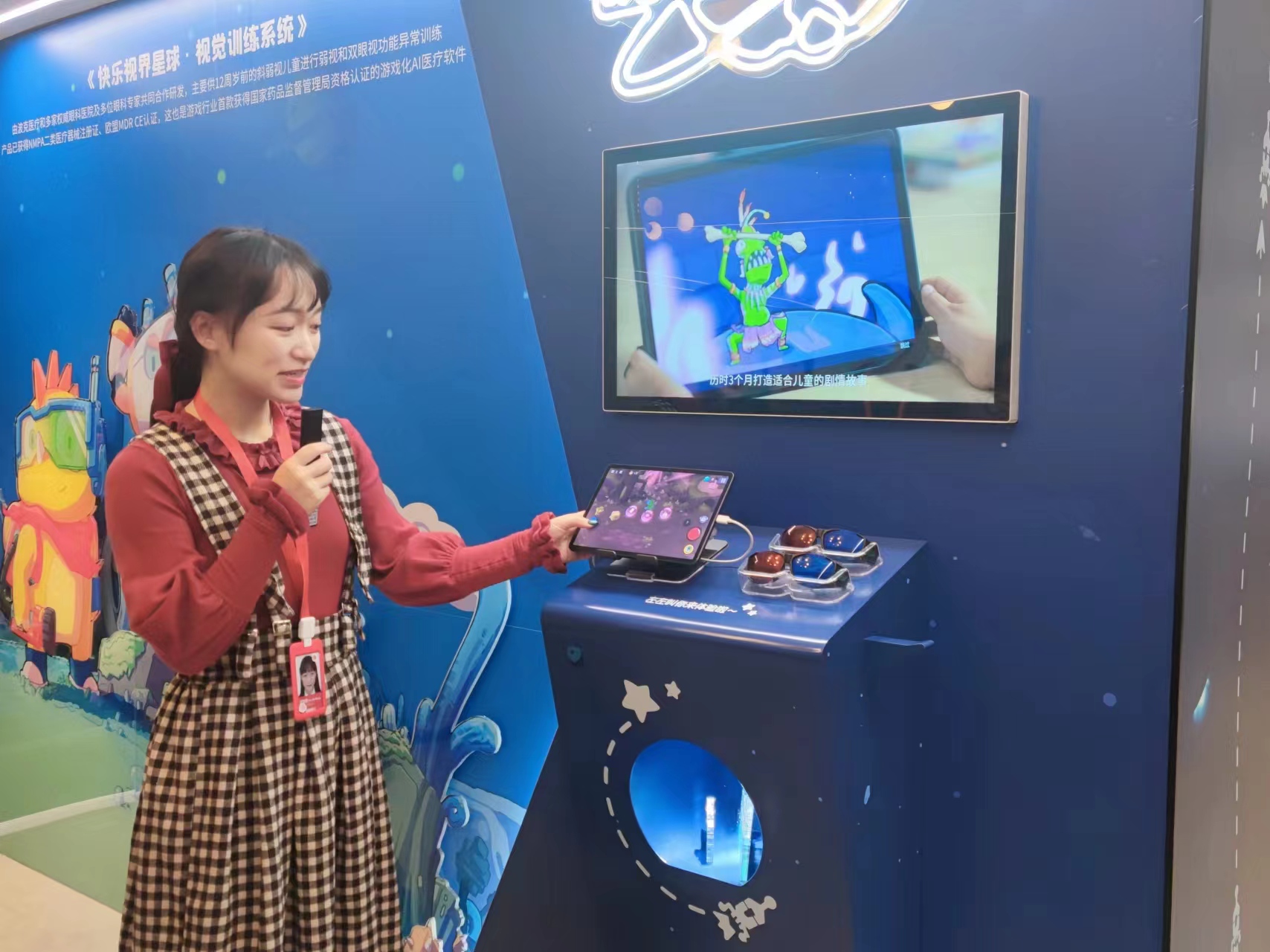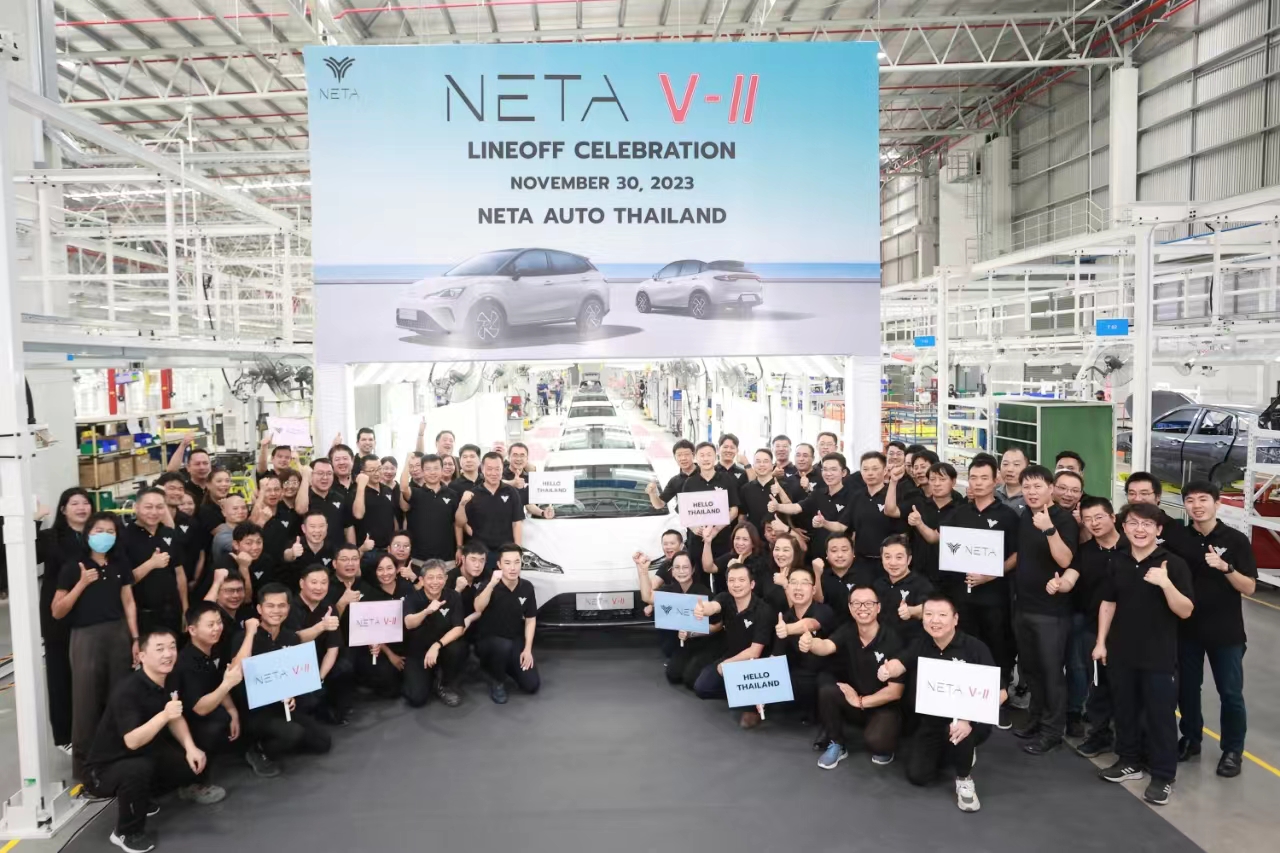 Shanghai's Putuo District Emerges as Hub for Digital Economy With Growing Private Sector
Shanghai's Putuo District Emerges as Hub for Digital Economy With Growing Private Sector(Yicai) Jan. 9 -- As China strenuously develops its digital economy and private sector, Shanghai's Putuo district is spearheading the deep integration of digital elements with the industrial economy through supportive policies and services.
Firms based in Putuo, including Alibaba Group Holding's takeout platform Ele.me, game developer Boke Technology, and electric vehicle startup Hozon New Energy Automobile, also known as Neta Auto, are driving the development of the new economy, including online entertainment, digital lifestyles, and intelligent vehicles, said Li Wenbo, director of the district's Science and Technology Commission.
Putuo will further refine the digital economy's infrastructure, elevating the level of digital services and creating a better business environment for companies to build a globally competitive digital economic hub, Li added.
Ele.me: Digitization's Role in Improving Community Services, Business

"Ele.me and many other internet platforms promote business prosperity and consumer upgrades and use digitization to improve overall service efficiency and enhance community governance or the service levels,” Vice President Guo Li said in a recent group interview with reporters organized by the Putuo district authorities.
Ele.me's innovative business model has a nationwide reach. "We chose Shanghai for our base to innovate in the most developed areas of commerce, internet commerce, and retail business," noted Guo. "The 'online ordering and offline delivery' model requires a solid commercial foundation for innovation, technically and in terms of service operations.”
Ele.me works with around 4 million merchants and couriers a year. Its gross merchandise value was over CNY100 billion (USD14.1 billion) in the first half of 2023, while revenue exceeded CNY10 billion (USD1.4 billion). The firm’s transaction volume and orders soared in the second half due to continuous improvement in consumer demand and an increasing supply of quality merchants.
Ele.me is further improving its delivery rate, which has an all-time high of about 99.5 percent, through algorithms and supercomputing platforms, Guo said. In addition, the company is expanding its delivery services beyond meals to include more community stores such as pet shops, bookstores, and general outlets, Guo added, noting that these services only account for about 10 percent of total business but are rapidly growing.
Regarding enhancing community service levels, Guo used the example of elderly people living alone to whom Ele.me, in collaboration with the government and communities, delivers meals. Couriers who bring food and interact with these people receive positive feedback from them or their families, becoming a social force in the community elderly care system.
"Using digital services and technologies as a supplement to community service capabilities is meaningful and valuable, both for me and Ele.me," Guo stressed.
Boke: From Gaming to ‘Gaming Plus’

Initially a modest online video game developer, Boke has leveraged China's state-provided internet infrastructure, including fourth- and fifth-generation technologies and Shanghai's conducive business environment, to become a major player in the gaming industry in the rapidly evolving digital economy. It boasts more than 1,000 employees and over 30 million daily active users.
Since 2019, Boke has been pioneering the integration of gaming with sectors like healthcare, education, and arts in the 'gaming plus' model, Deputy General Manager Liu Zhongsheng told reporters. This initiative, part of China's broader push to diversify technology applications, reflects a new trend in the evolution of the gaming industry, Liu added.
One notable innovation is the rehabilitation software ‘Happy Vision World: Vision Training System,’ developed for children with impaired vision or a squint and created in collaboration with eye hospitals and experts. The breakthrough software, targeting kids under the age of 12, received a medical device registration certificate in 2022, and this gamified treatment approach has markedly improved patient adherence, a significant advancement over traditional methods.
Boke has also developed a gamified artificial intelligence medical software to delay the progression from mild cognitive impairment to dementia. The product has received a Class II medical device registration certificate from the National Medical Products Administration.
This strategic pivot is not unique to Boke, with major industry players such as tech giant Tencent Holdings exploring similar 'gaming plus' sectors and signaling a shift toward more diversified applications of game technologies. The potential for commercialization in these new domains is substantial, according to industry analysts.
In line with these developments, Boke has set up a Game for Good, or G4G, platform for firms and institutions in various sectors to harness the positive impact of gaming and explore further possibilities in the 'gaming plus' domain.
Neta Auto: Winning Global Consumers With Smart Tech

"Neta Auto's intelligent driving and smart cockpit are key to attracting tech-savvy users globally," VP Chen Ciliang told the reporters after the carmaker announced that its annual overseas sales target will jump six-fold to 100,000 units this year. The company is confident about capturing a larger global market share, especially among young consumers with high demand for new energy and smart technologies.
The global trend in auto consumption mirrors that of China, focusing on younger users, technology, fashion, and sports, Chen noted. Neta Auto has set smart cockpits and smart driving as global product standards and is bringing popular Chinese internet products to international markets via app and vehicle connectivity, he added.
Neta Auto plans to enter 60 countries this year, according to VP Zhou Jiang, who is also head of the carmaker's overseas business. It has sold a total of about 20,000 units in 29 countries, including over 10,000 autos in Thailand last year.
Neta Auto has a wide range of products, including left- and right-hand drive vehicles, pure EVs, and range-extended models, while meeting European Union standards, Zhou pointed out. It expects to have six to seven models available for sale overseas by the end of this year, and with its main products costing between USD15,000 and USD35,000, it covers most of the mass consumer market, he added.
The overseas localization is also moving apace. Neta Auto’s Thailand factory rolled off its first car last month, while its Indonesia plant will start producing localized vehicles early this year.
“We're also exploring the feasibility of localized production in markets like Central and South America, the Middle East, North Africa, Central and South Asia, and Europe to ensure that out of the 1 million Neta Auto vehicles targeted for 2026, some 30 or 40 percent are from localized production overseas," Zhou said.
Editor: Martin Kadiev